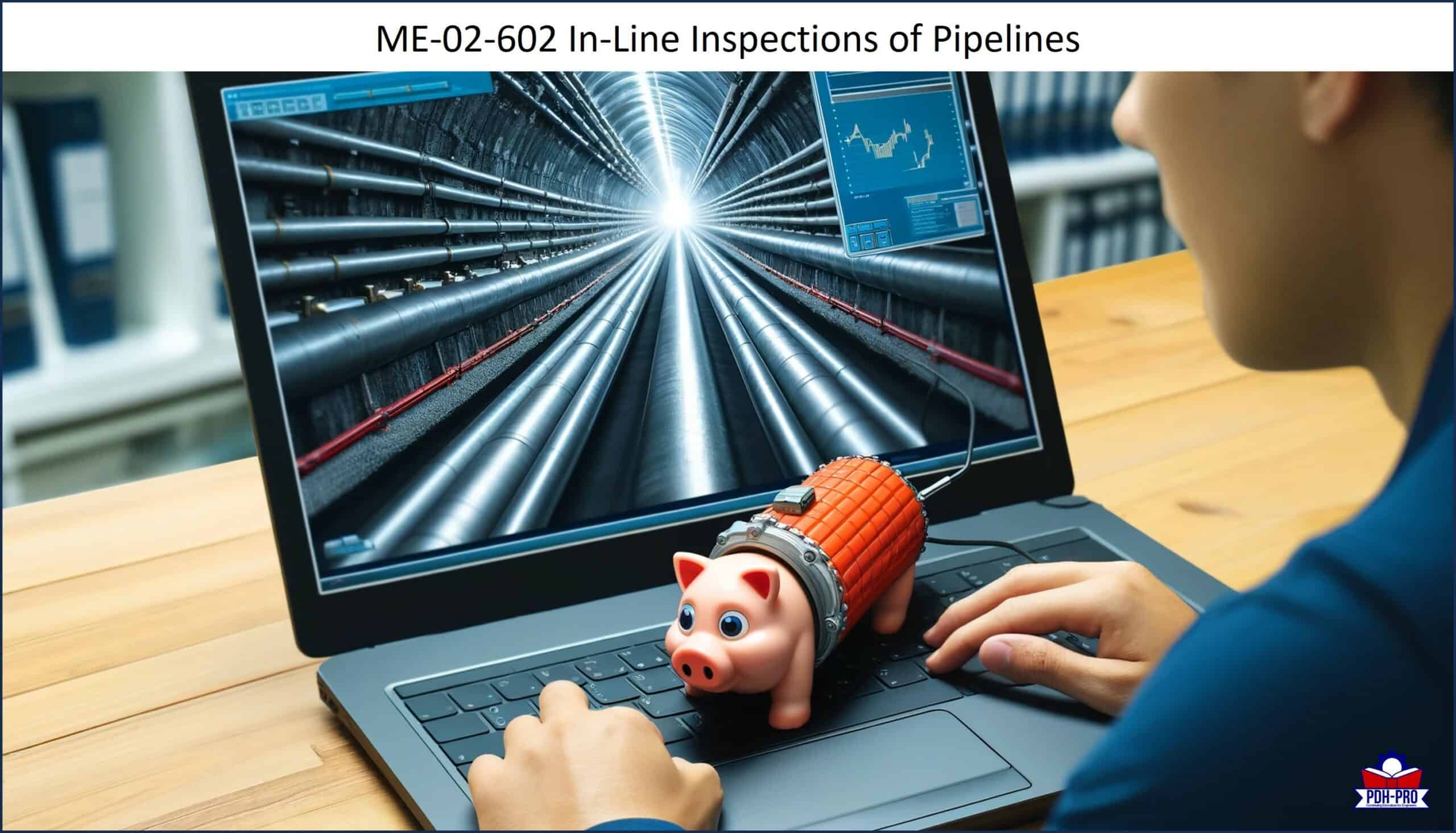
In-Line Inspections of Pipelines
In the mid 1960s, pipeline operators began to use a form of instrumented inspection technology that has evolved into what is known today as in-line inspection (ILI). ILI is but one tool used in pipeline integrity assessment. The technology has now become so reliable that it holds a prominent place in many operators’ integrity programs because when properly applied, ILI provides many economies and efficiencies in integrity assessment at a relatively small risk.
This course outlines a standard practice of related activities that a pipeline operator can use to plan, organize, and execute an ILI project. Guidelines pertaining to ILI data management and data analysis are included. It is applicable to carbon steel pipeline systems used to transport natural gas, hazardous liquids including those containing anhydrous ammonia, carbon dioxide, water including brine, liquefied petroleum gases (LPG), and other services that are not detrimental to the function and stability of ILI tools.
Once you complete your course review, you need to take a multiple-choice quiz consisting of fifteen (15) questions to earn 3 PDH credits.
Learning Objectives
This course is intended to provide you with the following specific knowledge and skills:
- Familiarity with the NACE International Standard Practice for In-Line Inspection of Pipelines
- Knowledgeable about applicable codes and standards for ILI
- Understanding of standard practices used to plan, organize, and execute an ILI project
- Requirements of an ILI program including inspections, maintenance, and operations
Download the Course to review and begin earning your PDH credits.
We provide technical courses for PDH credits that meet Board requirements for Professional Engineers, Geologists and Land Surveyors. This courses is guaranteed to be accepted in AK, AL, AR, GA, IA, IL, ID, IN, KS, KY, MD, ME, MI, MN, MO, MS, MT, NC, ND, NE, NH, NJ, NM, NV, OH, OK, OR, PA, SC, SD, TN, TX, UT, VA, VT, WI, WV, and WY. Before purchasing this course, please confirm that your state Board is listed above.
